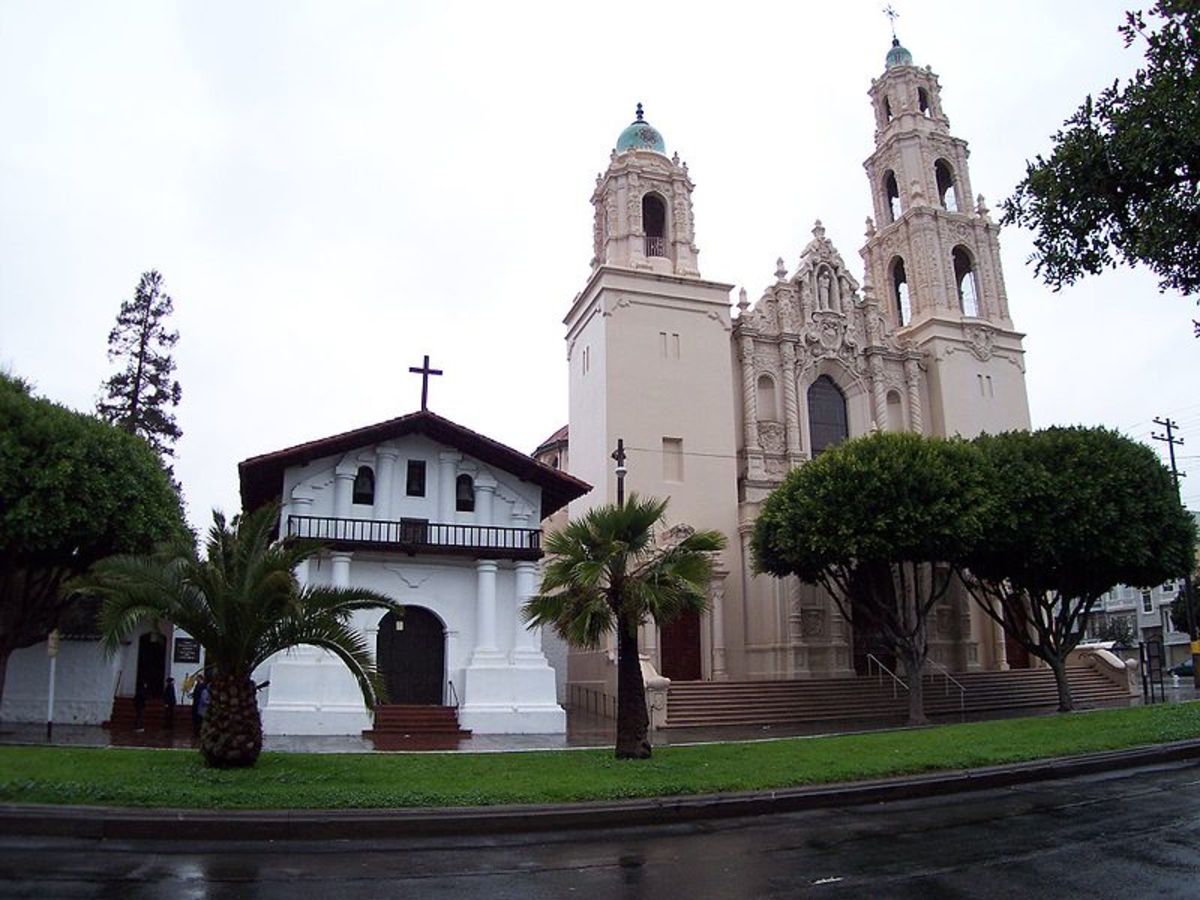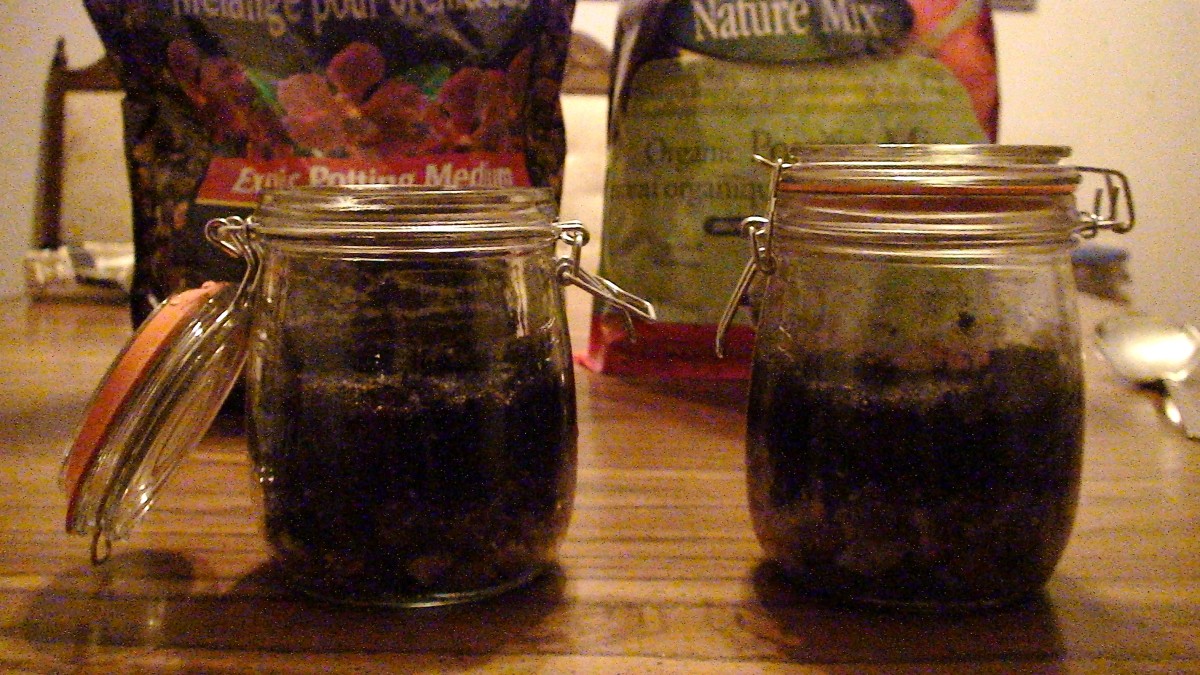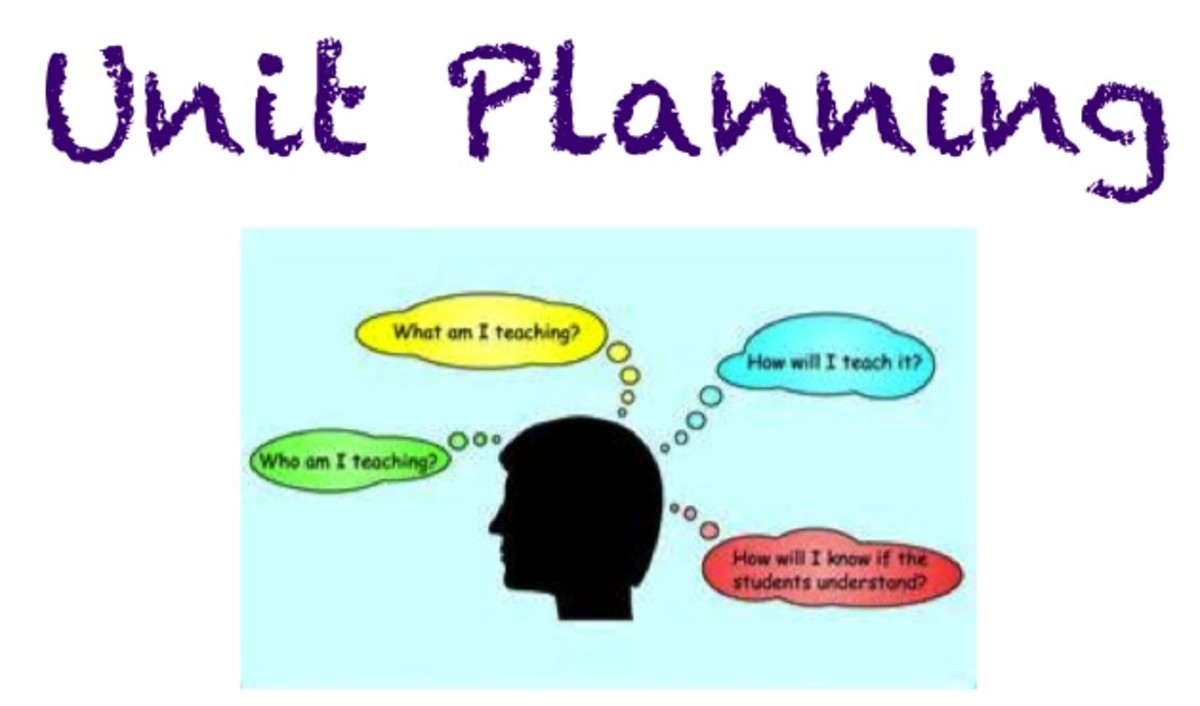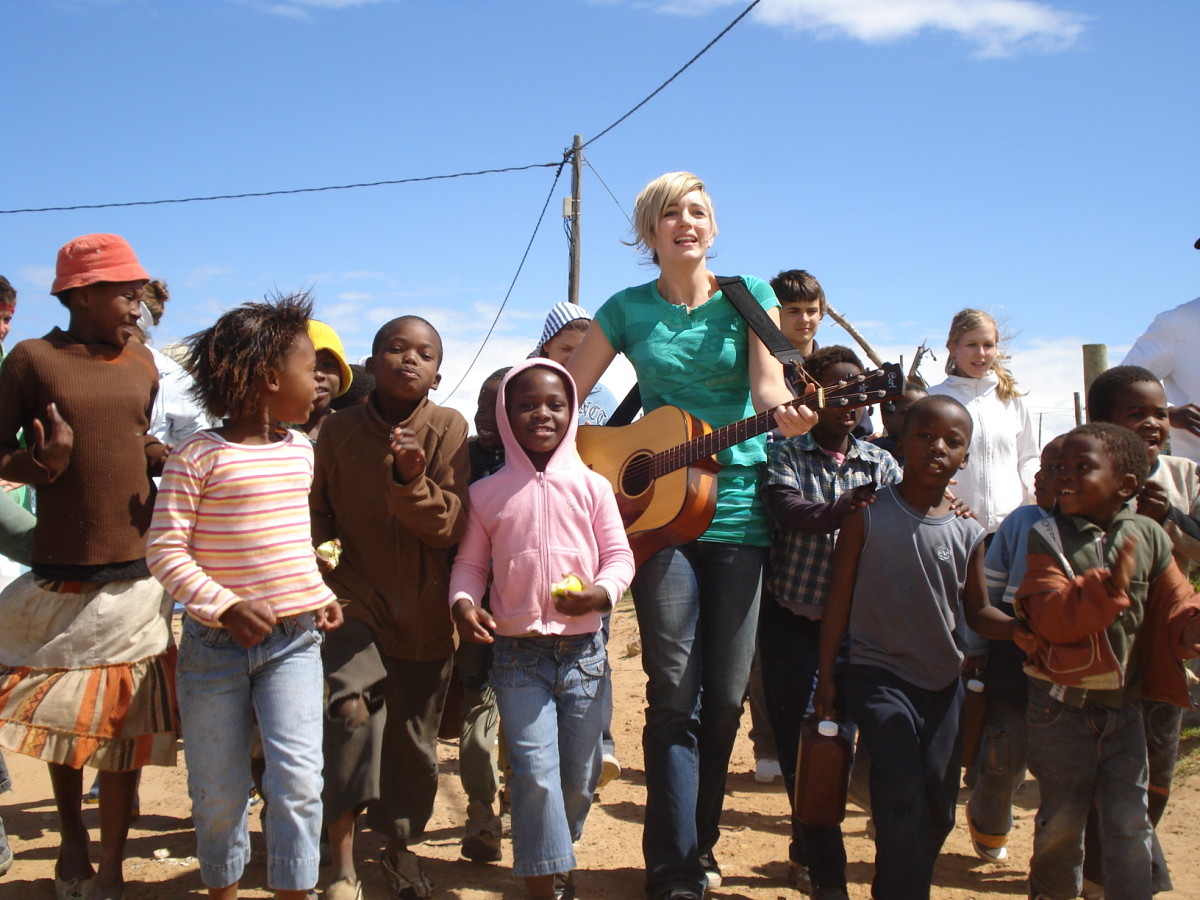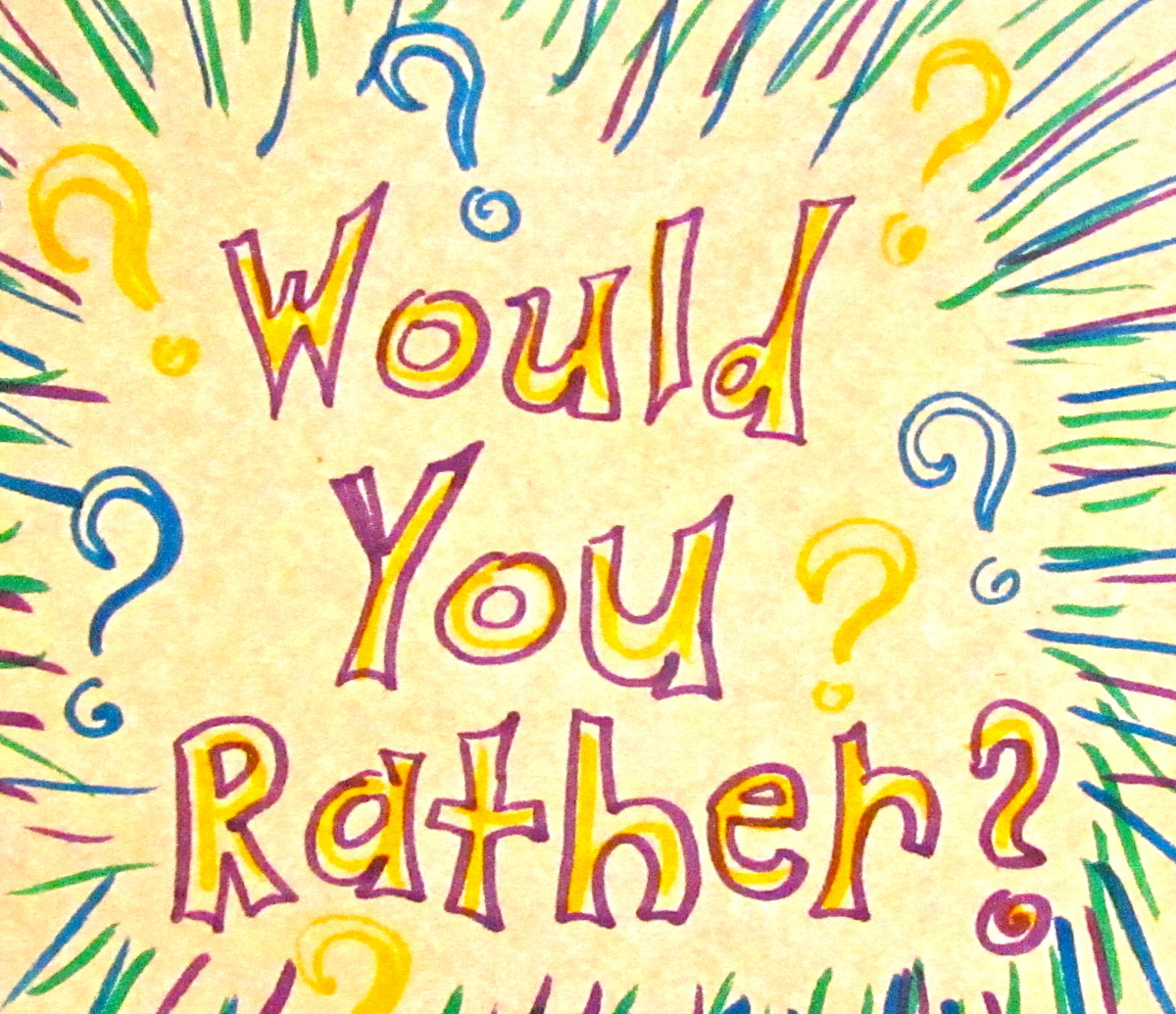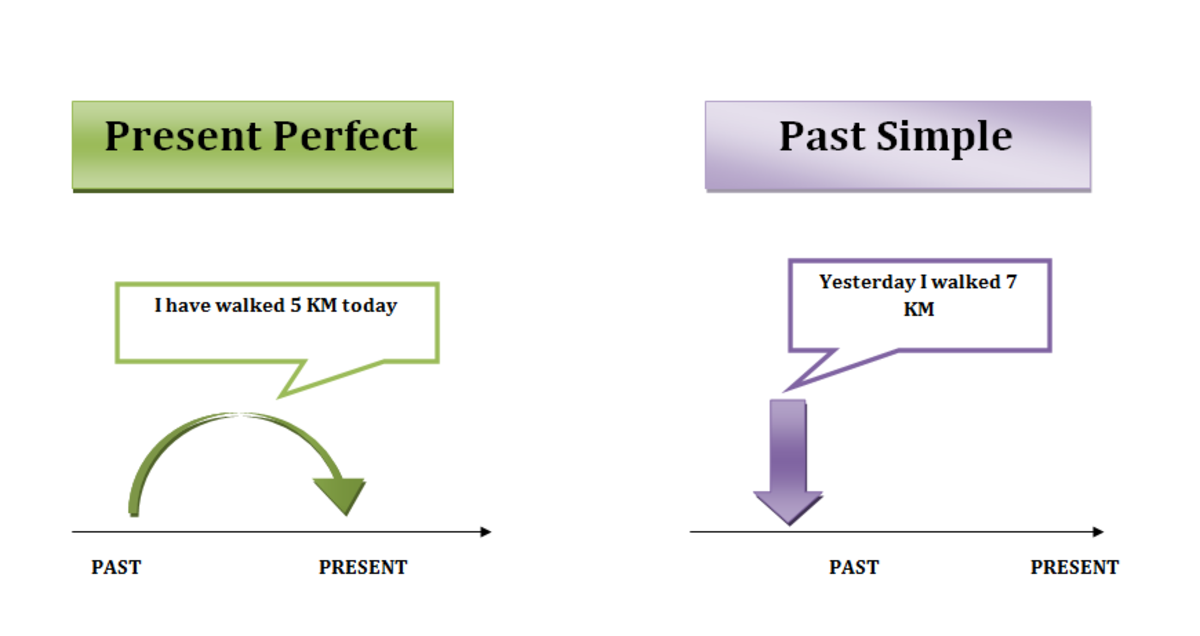ESL/EFL Intermediate Lesson Plan – From 'Toilet to Tap'
Contents of ESL Lesson Plan
- A warm up.
- A fascinating article about recycled water, which will act as the basis of your discussion section.
- A discussion section.
- A vocabulary section – match words and phrases.
- A speaking activity for groups or pairs about personal water usage.
- Answers for the teacher.
- Level: Intermediate and Upper-Intermediate.
- Time: 60 minutes
ESL Intermediate Lesson Plan - From Toilet to Tap
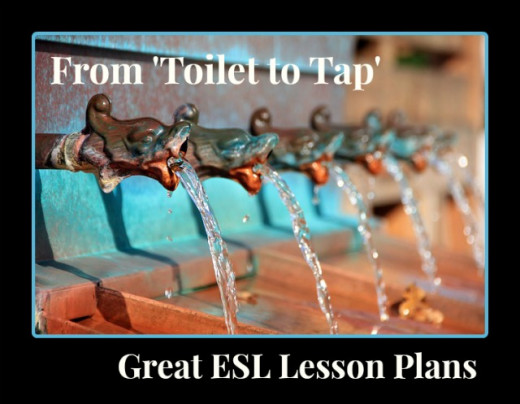
Warm Up
- Do you think the climate has changed recently in your country? How?
- Are you careful about how much water you use?
- What do you think about drinking recycled water?
Reading
California
For several years in a row Orange County in California has been home to an exceptional drought. The water from the melting snows of Sierra Nevada, the Colorado River and the groundwater have all been declining over the last number of years. Residents have had to turn to 'toilet to tap' methods of reusing water. This is where water from toilets, dishwashers, washing machines and showers is cleaned and filtered and then returned to the underground reserve.
The water re-use plant in Orange Country purifies 378 million litres (100 million gallons) daily. It's cheaper than desalinating water or transporting it from northern California. The purification methods are held to a high standard. It is filtered through tiny straws to remove the bacteria, then a process called reverse osmosis extracts the chemicals and finally it is treated with UV lights. Even though it is squeaky clean, it is still not used directly as drinking water.
Singapore
In another part of the world, they are battling a similar water scarcity problem. Singapore has to import millions of litres of water from neighbouring Malaysia each day and the hundred year-water contract will run out in 2061. Because the country is so tiny (it is about the size of Hamburg in Germany), it cannot dig for new water sources and has to rely on desalination processes, rainwater and the reservoirs for fresh water.
These limitations led the government to begin NEWater purification processes in 2003. Now Singapore generates 430 million litres of water a day, most of which is used by industry. A small percentage is bottled, but not for sale. They are handed out at major events to raise public awareness and interest in the project. There is also a visitor's centre where tourists and school children can take a tour to familiarise themselves with the model of recycled sewage water.
Why bother?
Water security is a serious problem. In Yemen, they estimate that the capital will have run out of water by 2025. Land and water disputes kill more people per year than terrorism and it is creating a wave of water refugees and food shortages that surrounding countries can no longer ignore. This is a perfect example of why the idea of 'toilet to tap' is a necessary step. The sophisticated process adjusts the water quality depending on its use, whether for industry or for agriculture, and most importantly, it can be locally sourced. The next step is overcoming the yuck factor and having people come round to the idea of drinking it.
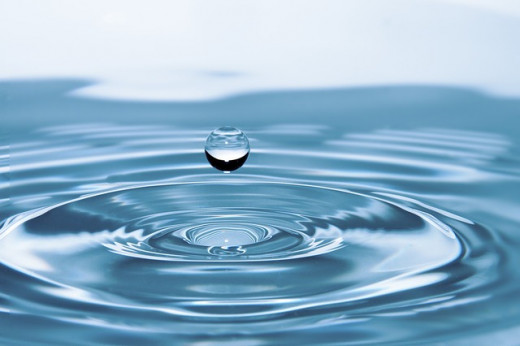
Discussion Questions
- When the final product was tested in both examples, the water exceeded safety standards. Would you still drink it though?
- Do people in your country take water for granted?
- Do you leave the tap running when brushing your teeth or washing your face?
- In Orange Country you could be fined $500 for turning on a fountain or hosing down the footpath. Do you think these are effective deterrents?
- Imagine you lived there and there was dog poop all over your footpath. Would you be tempted to use the hose? Would you do it secretly?
- The state disposes of 1.3 billion gallons of water into the ocean every day in California. How could residents at an individual level change this pattern?
- One of the first attempts to recycle potable water failed in San Diego in the 1990s because people were so disgusted by the idea. If you were in charge of an awareness campaign, how would you try to change peoples' perceptions of 'toilet to tap'?
- Have you heard of any stories on the news of water contamination? What were the circumstances?
- Many women and children in the developing world spend 15 hours a week collecting water. Imagine you had to sacrifice 15 hours of your week. What would you do less of to make up those hours?
- Educational campaigns have been having some success making people aware of this limited resource. One of the suggestions is not to the call the process 'toilet to tap'. Do you have any suggestions?
Vocabulary Match - Words and Phrases
exceptional
| A supply of a commodity that is not needed immediately, but available when required.
|
melting
| Developed to a high degree of complexity.
|
declining
| Turn into liquid by heating.
|
reserve
| Hollow tubes of plastic.
|
purifies
| Fighting to achieve something.
|
straws
| Not typical.
|
battling
| Remove contaminants from something.
|
scarcity
| Becoming less.
|
sophisticated
| A shortage of something.
|
Phrases
held to a high standard
| Something that can be obtained nearby.
|
desalination process
| Completely clean.
|
squeaky clean
| Use up the supply of something.
|
sourced locally
| Something disgusting.
|
run out of
| Convert to another person's opinion.
|
yuck factor
| To have high expectations of something.
|
come round to the idea
| The process of removing salt from saltwater.
|
From Toilet to Tap
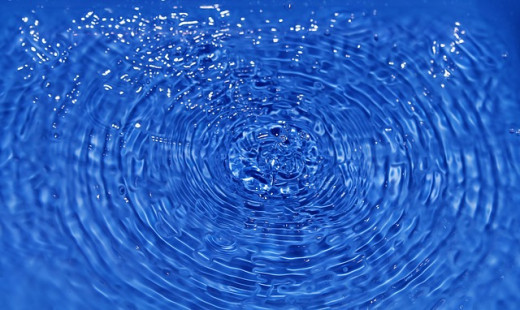
Speaking Activity
Read these statistics from Water.org:
-
750 million people lack access to clean water.
-
850,000 people die from a water-related disease each year.
- More people in the world have a mobile phone than a toilet.
- An American who takes 5 minutes in the shower uses more water than someone living in the developing world.
Now think about the amount of water you use every day and fill in the information below with your partner.
Shower
Old shower12-15 litres p/min
Efficient shower 7 litres p/min
Toilet
Single Flush 12 litres
Dual Full Flush 6 litres
Bath
Half full 80 litres
Bathroom
Brushing teeth/shaving with tap on 5 litres p/min
Brushing teeth/shaving with tap off 1 litre p/min
Cleaning
Hand washing dishes18 litres (one meal)
Old dishwasher 60 litres
Efficient dishwasher 18 litres
Washing Machine
Front loader 60 litres
Top loader 150 litres
Answers
This ESL intermediate lesson plan was based on the following sources: http://www.theguardian.com/environment/2014/aug/07/california-drought-orange-county-toilet-to-tap-water and http://www.dw.de/singapores-toilet-to-tap-concept/a-16904636
Answers to Vocabulary Match of the lesson plan section.
Words
- Developed to a high degree of complexity-sophisticated
- A supply of a commodity that is not needed immediately, but available when required-reserve
- Turn into liquid by heating-melting
- A hollow tube of plastic-straws
- Fighting to achieve something-battling
- Not typical-exceptional
- Remove contaminants from something-purifies
- A shortage of something-scarcity
- Become less-declining
- Waste water from excrement-sewage
Phrases
- Something that can be obtained nearby-sourced locally
- Completely clean-squeaky clean
- Use up the supply of something-run out of
- Something disgusting-yuck factor
- Convert to another person's opinion-come round to the idea
- To have high expectations of something-held to a high standard
- The process of removing salt from saltwater-desalination process
© 2015 Muttface


